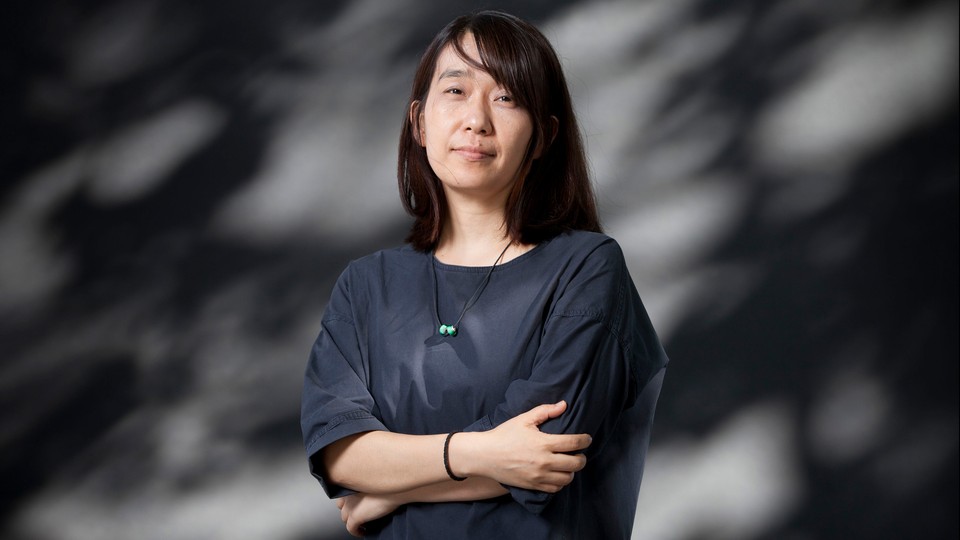Han Kang’s Transgressive Art
5 min read
“What a great day for Korea!” my mom wrote to me on Thursday. “Nobel for Han Kang!”
For the past few decades, several South Korean authors have been bruited about as contenders for the Nobel Prize in Literature, notably the poet Ko Un and the novelist Hwang Sok-yong, elder statesmen who were both previously jailed for political activism. As an American-born writer of Korean ancestry, I liked these authors in theory, but their actual work didn’t jump off the page for me, an English-only reader. If I wasn’t “getting” it, what chance did it have for others who would be reading their work in translation?
When I started writing my novel Same Bed Different Dreams in 2014, the thought of a South Korean Nobel laureate was very much on my mind. As in: It will never happen. I remembered attending a publisher’s lunch in 2008 for Hwang, whose gravitas and gentleness impressed me greatly; unfortunately, I was the only member of the media there. Nobody cares about Korea, I thought. For Same Bed, I dreamt up a genius Korean novelist I called Echo, a former enfant terrible loosely inspired by Hwang and Ko. (Sexual-misconduct allegations have since tarnished the latter’s reputation. Ko has denied the accusations.) The first scene I wrote was set at a New York dinner party held in Echo’s honor, at which his (white) U.S. publisher, Tanner Slow, says to the narrator:
“Echo is the most fantastic Korean writer you’ve never heard of. A situation that is going to change, and change soon … Now, I’m not supposed to say this, but a source tells me Echo’s on the secret long list for the … you know.”
“Eh?”
“The Big N.”
“I don’t know what that is.”
“The Nobel Prize.”
Same Bed took nine years to write, during which time Korean music (BTS), films (Parasite), and TV shows (Squid Game) exploded into global sensations. In October 2015, I visited Seoul for a publishing conference; one speaker, alluding to the growing popularity of K-pop, suggested (naively, I thought) that Korean books might similarly benefit from being branded as K-lit. That same month, I published an essay in The New Yorker on Korean literature in translation, discussing a raft of works that had recently been issued by Dalkey Archive. It was a haphazard immersion, with publication dates from the 1930s to the early aughts, and titles ranging from soft-spoken to surreal. Many of the books were good; one was great. But it was hard to imagine any of them (particularly in their uniformly drab covers) getting much outside play.
Then something happened that I didn’t foresee. A few months after my article appeared, Han’s 2007 novel, The Vegetarian, was published in the United States. It went on to win the Man Booker International Prize and was named one of the 10 best books of the year by the New York Times. Unlike many non-American Nobel laureates, who might be fairly unknown in the U.S. before winning the prize, Han, thanks to that novel’s success, already had a sizable and passionate stateside readership before Thursday’s announcement from Stockholm. As a friend texted me, “How many recent winners have a book on Amazon with 9000+ reviews?”
Han’s English-language debut (championed by her young British translator, Deborah Smith) begins with a deceptively placid sentence: “Before my wife turned vegetarian, I’d always thought of her as completely unremarkable in every way.” The narrator claims to seek the “middle course,” but he’s a garden-variety chauvinist who just wants a docile, subservient wife. There’s no great physical attraction; Yeong-hye is completely average in every way, from the hair on her head (“neither long nor short”) to the plain shoes on her feet. But she’s free of “drawbacks” and thus makes suitable wife material.
All of this will be demolished in short order. One morning, the narrator wakes up late to see that a strangely dazed Yeong-hye has disposed of all their meat—pork belly, shabu-shabu beef, dumplings, eel. (A more accurate title might be The Vegan—she chucks the eggs and milk as well.) The narrator’s growing alarm over his wife’s new diet and withering body is interspersed with italicized entries in her voice: dreams or memories or both, including one about the butchering—and consumption—of a dog that bit her as a girl. Han’s hunger artist wonders: “Why are my edges all sharpening—what I am going to gouge?” The answer, it seems, is Korea’s patriarchal society.
Other recent Korean novels (notably Cho Nam-Joo’s Kim Jiyoung, Born 1982, which became a best seller in South Korea when it was published, in 2016) have criticized sexism in that country. But The Vegetarian stands out for its unwillingness to stay still. Its tripartite structure keeps the reader off-balance and complicates Yeong-hye’s act of resistance. It’s a feral work of imagination, and despite—or because of—its prickliness, it will find readers around the world for decades to come.
A country’s literature is varied, but there are secret through lines, hidden traditions. I’m reminded of the fact that when part of The Vegetarian appeared in Korea as a novella, it won the Yi Sang Literary Award, named after one of the strangest writers of any place or time, a hero of mine whose fugitive work and tortured life still baffle and fascinate today. He died in 1937, without a book to his name. But decades later, Han came across a line from his journals—“I believe that humans should be plants”—that inspired The Vegetarian. What a great day for Korea.



